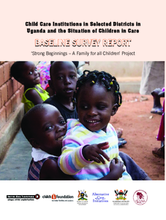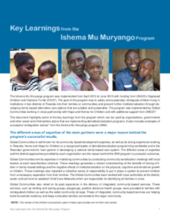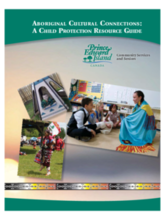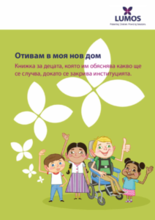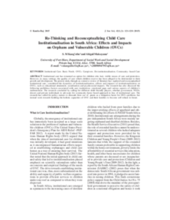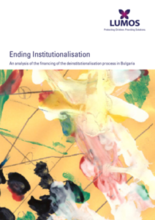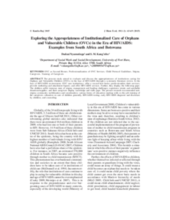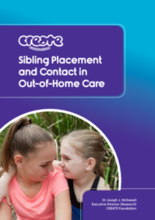Displaying 1131 - 1140 of 1510
This report presents findings of a baseline study for the Strong Beginnings -- A Family for all Children project.
This document highlights some of the key learnings from the Ishema Mu Muryango program, a program designed to safely and sustainably reintegrate children living in institutions in two districts of Rwanda into their families or communities and prevent further institutionalization.
This resource guide offers a fairly comprehensive guide to engaging with the Aboriginal community on Prince Edward Island, Canada. It includes a history of the use of residential schools for Aboriginal children, as well as a description of the widespread removal of Aboriginal children from their families and communities for adoption placement in the 1960s through the 1980s.
Целта на тази книжка е да обясни на децата какво да очакват през периода, когато институцията се затваря.
This video from Globalsl.org, produced by Kindea Labs, describes both the negative impacts of orphanage volunteering and tourism as well as the ways in which international volunteering can be conducted appropriately for a positive impact on a community.
The present study, through an extensive review of literature has explored and reconceptualised institutional care and considered the dynamics of institutionalization. The study also examines the effects and impacts of institutionalization on OVCs in South Africa, such as educational attainment, socialization and psychosocial impacts.
This study tested the capacity to perceive visual expressions of emotion, and to use those expressions as guides to social decisions, in three groups of 8- to 10-year-old Romanian children: children abandoned to institutions then randomly assigned to remain in ‘care as usual’ (institutional care); children abandoned to institutions then randomly assigned to a foster care intervention; and community children who had never been institutionalized.
According to this report from Lumos, in 2010 there were more than 6,700 children living in institutions in Bulgaria.
The present study aimed to evaluate and discuss the appropriateness of institutions caring for Orphans and Vulnerable Children (OVCs) in the face of HIV/AIDS through a systematic literature review.
This research report analyzes the contributing factors in children and youth’s ability to be placed in care alongside siblings, as well as how caseworkers view sibling placements in Australia’s child welfare system.

